
© Janelle Jones. (Click image for larger version)
Dance Heginbotham
Angel’s Share, Diamond, Easy Win
New York, Joyce Theater
11 October 2015
www.danceheginbotham.org
joyce.org
Études
A member of the Mark Morris Dance Group from 1998-2012, John Heginbotham was a benevolent presence in works like Four Saints in Three Acts (in which he played St. Ignatius) and Romeo and Juliet (Friar Laurence). Three years ago he formed his own ensemble, and has been steadily making work ever since. Like his old boss, he is musical and has a way with comedy. Heginbotham’s comedy, though, has tended to veer more toward quirkiness, perhaps in an attempt to distance himself from Morris. Some of his recent dances, like Dark Theater, which premiered at BAM Fisher, verge on the surreal.
In the past, he has employed a varied vocabulary, drawing from ballet, vaudeville, even cartoons, but for his début at the Joyce, which I caught over the weekend, he has made a decisive turn toward ballet. Not the showy or hyper-virtuosic kind one sees at NYCB or ABT, but a basic, clean vocabulary of tendus, jumps, turned-out legs and pointed feet. Arms are often held straight up in a V or out to the sides like airplane wings. It’s almost as if he had made the decision to strip away his usual quirks and make the most straightforward, direct works he possibly could.
The approach mostly works, though it makes for a somewhat generic opener. Angel’s Share, set to Ernst von Dohnányi’s lovely Serenade in C Major for string trio, is the least memorable work of the evening. It’s pleasing and well-crafted, featuring a lively counterpoint of soloists and ensemble, but feels a little bit like a choreographic exercise. One can almost hear Heginbotham enumerating his priorities. Create a theme: check. Bring it back throughout the work: check. Present melancholy solo with back to audience and then reverse: check. The best elements are a duet for two very different women – Macy Sullivan, who looks like a curly-haired child, and the loose-limbed, daffy-eyed Lindsey Jones – and a recurring circle motif that suggests a theme of inclusion and exclusion.
Heginbotham has a knack for choosing just the right music for his dances, none of it hackneyed or used solely for its atmospheric qualities: no Arvo Pärt, no Philip Glass. All the music here was played live. The string trio in Angel’s Share and the two pianists, George Shevtsov and Ethan Iverson, gave vibrant, highly individual performances. Their involvement made the dances look sharper, more alive. The one poor choice was asking Mr. Shevtsov to play during the pauses between the works. He is too good, and too intimate a pianist, to have to compete with the audience’s desire to chat between one dance and the next.
Another excellent musical choice: Darius Milhaud’s Saudades do Brasil piano suite for a series of solos (Diamond) created for Kristen Foote, Heginbotham’s most striking dancer. Imposing, musical, and subtle, Foote reveals different moods and shades over the course of this charming, improvised-feeling suite of miniatures. Models from the past come to mind: Isadora Duncan’s improvisations, of course, and such Mark Morris solos as Ten Suggestions. Foote carries the whole thing off with sly insouciance and stylish sensuality, playing with the music’s gentle Brazilian swing and Frenchified syncopations. There’s a jolting moment in one of the pieces when she lowers herself to the floor and slithers like a lizard, sticking out her tongue. But then she’s up again, dancing away, until, with a cat-like smile, she gestures to the pianist, George Shevtsov, bows slightly, and walks off.
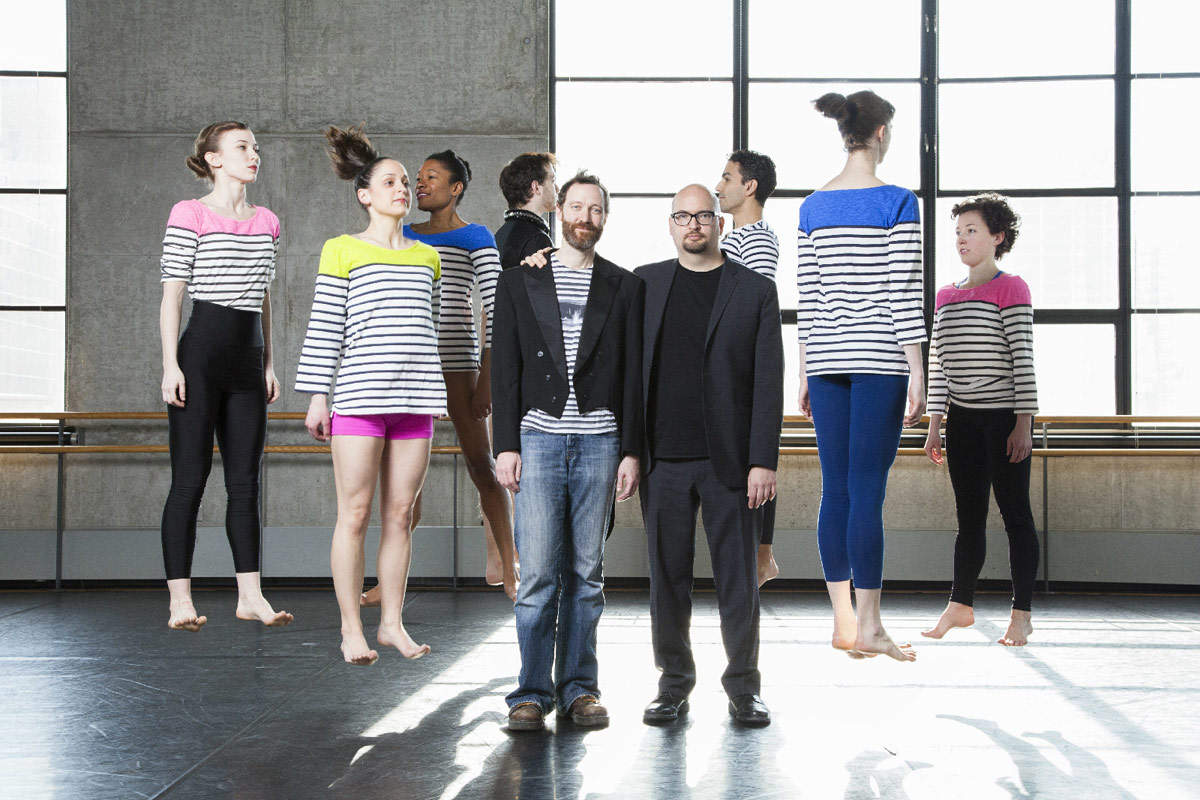
© Janelle Jones. (Click image for larger version)
The most substantial work of the night came last. Easy Win is a collaboration with the jazz pianist Ethan Iverson (of the trio The Bad Plus) who happens also to have been, for several years, Mark Morris’s music director. One of his duties then was playing for company class: music for tendus, pliés, little jumps, big jumps. Iverson’s score for Easy Win is like a witty riff on those classes. Deceptively simple, staccato rhythms, semi-improvised approximations of Czerny, Chopin and Scott Joplin rags. The meters keep shifting, but the dancers don’t seem to notice. Patterns repeat, just as they do in class, but with variations. Iverson, who sits onstage at an upright, is a charismatic performer. He stares back at the audience, and at the dancers. He’s very much a part of the piece.
Easy Win too has a Morris-ian antecedent (Canonic ¾ Studies), but what makes Easy Win so right is that it feels very much like a reflection of Heginbotham’s personality, simultaneously sly and tender-hearted. At several points, dancers fall to the ground; the others peer at them, unsure of what to do. One dancer, Courtney Lopes, often looks miserable, unsure of herself; she’s clearly having a bad day. Flirtations occur, and there is an entire section that consists of dancers knocking each other over and rolling around on the floor, overcome by lust. At another point, the dancers seem to be sleepwalking, as one might in an early morning dance class.
None of this is formulaic; it feels lived-in and personal and well matched to the music. (Iverson’s characterful playing is essential to the piece.) The dancers’ identities are strongly etched; it’s as if Heginbotham were revealing little secrets about them to the audience. All this without being too cute. With Easy Win, Heginbotham proves he is his own man.



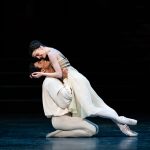


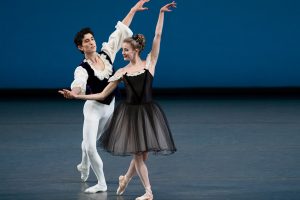
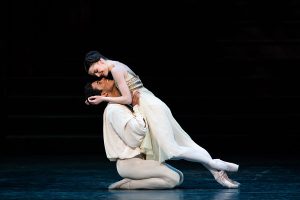
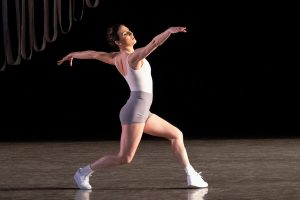

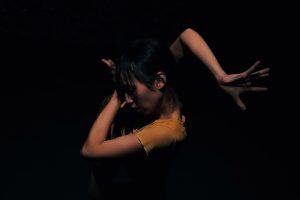
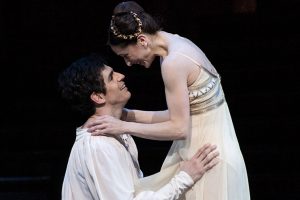



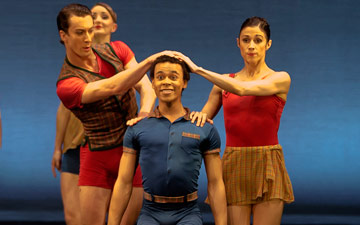

I considered attending this show but decided to skip it. Now I wish I’d gone. Easy Win, which i was curious about because it uses Ethan Iverson’s music, sounds from your description like it definitely would’ve been worth my time. Well, maybe next year…